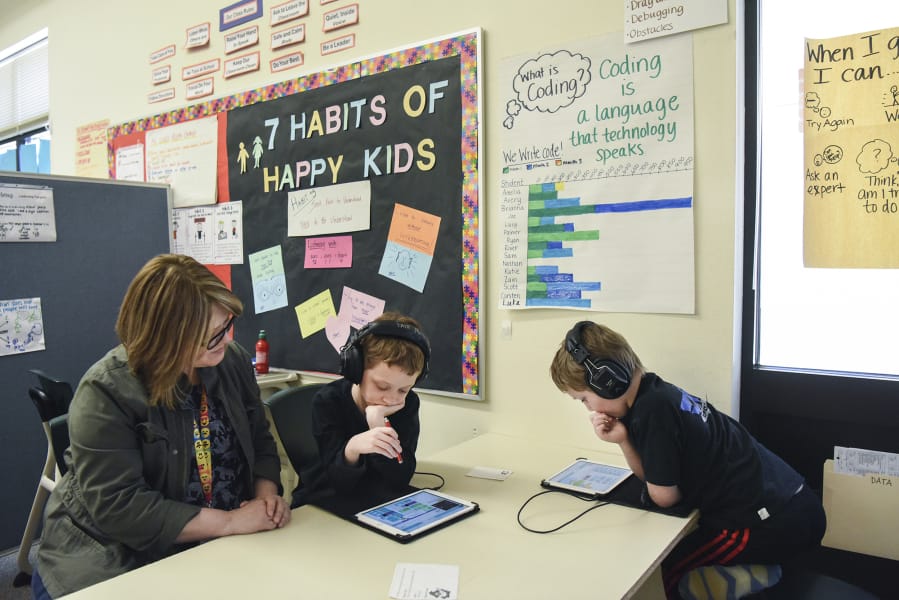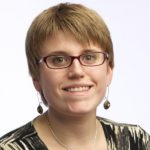Hunched over an iPad, Joe Ballard watched as pixelated storm troopers surrounded a tiny R2-D2.
With deft fingers, the 10-year-old boy dragged together what look like small puzzle pieces on the screen. They changed the scenery, the type of obstacles and the number of enemies in the game he built Thursday.
Joe, a fourth-grader at Felida Elementary School, is among 60 students enrolled in Vancouver Public Schools’ special education classes who is learning how to write computer code.
“It feels satisfying. It’s also challenging,” said Joe, who has written hundreds of lines of code, according to a chart on the classroom wall. “It’s a lot of puzzles.”
Vancouver Public Schools last year received a $5,000 grant from the Office of Superintendent of Public Instruction to launch a pilot computer science program for students in structured communication programs and structured learning centers. In other words, these are classrooms whose students demonstrate developmental delays in social awareness, communication skills and appropriate social behavior.
The Foundation for Vancouver Public Schools donated a matching $5,000 to the program, allowing the district to pay for training for teachers, purchase iPads for kindergarten through second-grade classrooms, and buy robots the students can program to move around their classrooms.
For one hour a week, students break out their iPads and visit Code.org, a free website with simplified coding exercises featuring cute and familiar characters. Students are learning the fundamentals of computer science, and can go on to build their own games, applications and art using code.
Currently, Felida, Sacajawea and Lincoln elementary schools are offering coding curriculum in special education classrooms, but Meagan Williams, a special education teacher and instructional technology facilitator leading the pilot program, hopes it will expand to other schools if grant funding continues.
“I have kids that shine,” she said.
Kim Brown, who teaches third- through fifth-grade special education at Felida Elementary School, said her students have been energetic and excited about learning how to write code.
“You’ll hear a lot of ‘Yesss!’ and ‘Ugggh!’ ” she said.
Though not all these children may grow up to be programmers, Williams said the students are learning how to problem solve, overcome obstacles and collaborate with their peers. The coding is a means to an end toward helping students work on their interpersonal skills.
“These are the things that help them be successful,” Williams said.
Williams sat with 7-year-old Katie Welborn on Thursday as the second-grader tried to make a puppy move from one part of the screen to the other.
“Coding is great,” Katie said, adding, “I tell myself how to learn.”
Deb Lobdell, who teaches a class of kindergarten through second-grade students, said the brief coding lessons have helped her students learn how to persevere and talk themselves through frustrating situations.
She points to Katie as a special case, saying coding has given her an opportunity to become an expert in a subject and a helper to her fellow students. Her success in coding has boosted her confidence and improved her work throughout the day, she added.
“She’s feeling like a scientist,” she said. “She’s feeling strong and powerful.”




